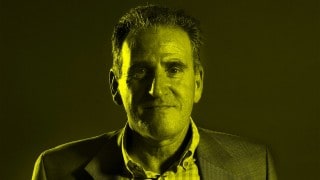For centuries, the rich and the powerful documented their existence and their status through painted portraits. A marker of wealth and a bid for immortality, portraits offer intriguing hints about the daily life of their subjects—professions, ambitions, attitudes, and, most importantly, social standing. Such portraits, as German art historian Hans Belting has argued, can be understood as “painted anthropology,” with much to teach us, both intentionally and unintentionally, about the culture in which they were created.
Self-portraits can be especially instructive. By showing the artist both as he sees his true self and as he wishes to be seen, self-portraits can at once expose and obscure, clarify and distort. They offer opportunities for both self-expression and self-seeking. They can display egotism and modesty, self-aggrandizement and self-mockery.
Today, our self-portraits are democratic and digital; they are crafted from pixels rather than paints. On social networking websites like MySpace and Facebook, our modern self-portraits feature background music, carefully manipulated photographs, stream-of-consciousness musings, and lists of our hobbies and friends. They are interactive, inviting viewers not merely to look at, but also to respond to, the life portrayed online. We create them to find friendship, love, and that ambiguous modern thing called connection. Like painters constantly retouching their work, we alter, update, and tweak our online self-portraits; but as digital objects they are far more ephemeral than oil on canvas. Vital statistics, glimpses of bare flesh, lists of favorite bands and favorite poems all clamor for our attention—and it is the timeless human desire for attention that emerges as the dominant theme of these vast virtual galleries.
Although social networking sites are in their infancy, we are seeing their impact culturally: in language (where to friend is now a verb), in politics (where it is de rigueur for presidential aspirants to catalogue their virtues on MySpace), and on college campuses (where not using Facebook can be a social handicap). But we are only beginning to come to grips with the consequences of our use of these sites: for friendship, and for our notions of privacy, authenticity, community, and identity. As with any new technological advance, we must consider what type of behavior online social networking encourages. Does this technology, with its constant demands to collect (friends and status), and perform (by marketing ourselves), in some ways undermine our ability to attain what it promises—a surer sense of who we are and where we belong? The Delphic oracle’s guidance was know thyself. Today, in the world of online social networks, the oracle’s advice might be show thyself.
http://www.thenewatlantis.com/archive/17/rosen.htm









